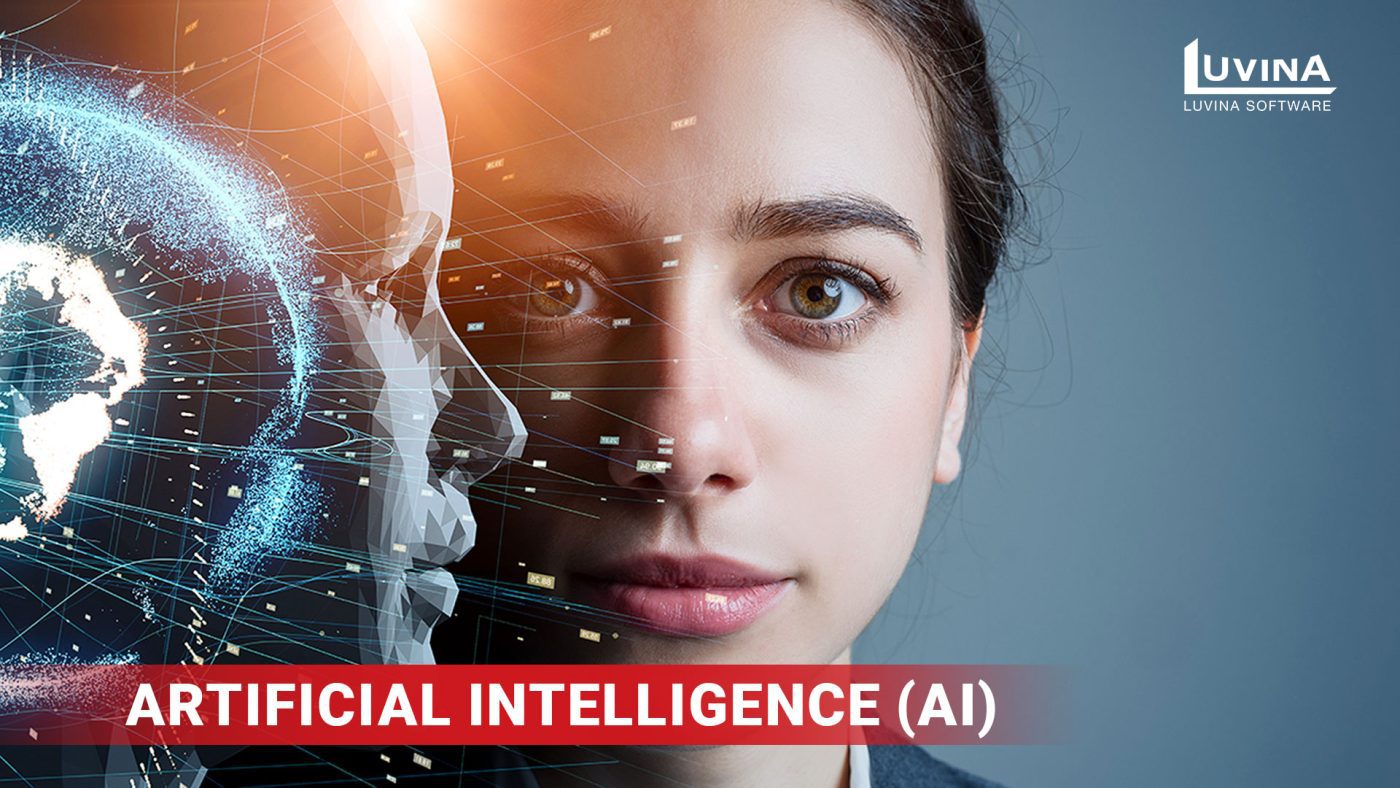Staying updated is crucial in the fast-paced mobile apps world, and Artificial Intelligence (AI) helps with that. In this blog, we’ll see how AI is changing mobile app-making and talk about the best tools to use. In mobile app development, many choices can make decisions tough. Yet, AI enables developers to efficiently pick the right tools using smart algorithms, simplifying the process. This makes things way easier!

TensorFlow, a popular open-source library, enables deploying ML models on mobile devices and other platforms. This integration enables easy incorporation of AI features like image recognition and natural language processing into apps, enhancing their capabilities.
Enhancing User Experience with AI
1. Customized user experiences based on user behavior
AI helps businesses make custom experiences that change as users do things. This makes apps easy to use and makes users happy. In today’s tough market, using AI to improve apps is essential. The right mobile app development technologies help businesses stand out, offering exceptional experiences that retain and engage users.
2. Natural Language Processing (NLP) and Voice Assistants
Voice Assistants make apps even better. You can use them without touching them, just by talking. You say something, and the app does it. This makes things easy and gives you a special way to use the app. When choosing a framework for app making, focus on ones that easily use AI. Mobile app development technologies let developers use things like talking to apps and understanding language. This makes apps that people like and enjoy using.
3. Predictive Analytics and User Behavior Analysis
When choosing mobile app technologies, factor in performance, scalability, ease of use, and popularity. Utilizing AI frameworks allows businesses to develop attractive, functional, and intelligent apps, elevating user experience and overall quality. AI frameworks can study how users act and change the app to fit them. This means each person gets a special experience. By watching how people use apps and using smart algorithms, businesses can make apps that each user will like.
AI in Mobile Commerce and E-commerce
1. Personalized shopping experiences and recommendation engines
Each mobile app technology offers its advantages and capabilities, allowing businesses to choose based on their specific requirements. From popular frameworks like React Native and Flutter to native development using Swift or Java, there is no shortage of choices.

Using these strong mobile app technologies, businesses can use AI to give smart suggestions. These suggestions look at what customers do, like what they buy or look at, and suggest things they might like. This makes customers happy and also helps businesses sell more stuff.
2. AI for Payment and Fraud Detection
When it comes to developing mobile apps, choosing the right mobile app technologies is crucial. AI frameworks for apps have lots of good things. They can find fraud right away by looking at how people pay and act. This keeps businesses safe and customers happy while shopping.
These frameworks make apps better by suggesting things based on what users like and bought before. AI looks at what people do and suggests stuff just for them. This makes users like the app more and helps businesses sell more.
AI in Mobile Healthcare and Wellness Apps
1. AI-powered diagnostics and disease prediction
Developers make strong platforms for health info and guesses. Mobile app development technologies look at data right away, helping users watch their health better. Also, AI tools help doctors predict diseases. These apps can find health problems early using smart algorithms and data analysis, so doctors can help in time.
When AI is added to health apps, it improves care and changes how we think about staying healthy. With precise tests available on phones, people can work on staying healthy ahead of time.
2. AI-driven Health and Fitness Tracking
The best pick varies based on scalability, performance, ease of use, and AI compatibility. Developers must consider these factors when selecting the ideal framework for their project.
With the best mobile app technologies, developers can use AI to make cool health apps. These apps give advice based on user info, track fitness well, watch health in real-time, and even guess possible health issues.
The Future of AI in Mobile Apps
1. Advancements in AI technologies and their impact on app development
Mobile app development technologies choice is pivotal in mobile app transformation. Optimal frameworks yield high-performing, feature-rich, user-friendly apps. AI-driven frameworks tap into machine learning and natural language processing, elevating functionality and user experience.
Selecting the best mobile app technologies involves considering flexibility, scalability, and cross-platform compatibility. Ample tools and libraries are crucial for seamless AI integration.
Integrating AI into app frameworks unlocks diverse potentials: tailored suggestions, smart chatbots, and industry-wide shifts, revolutionizing sectors.
2. Integration of AI with the Internet of Things (IoT) and edge computing
The integration of AI with the Internet of Things (IoT) and edge computing is a transformative trend in technology. Its potential to revolutionize industries and improve our daily lives is immense. This convergence combines the capabilities of artificial intelligence, the interconnectedness of IoT, and the efficiency of edge computing. The result is a more intelligent, responsive, and efficient ecosystem.
The Internet of Things (IoT) involves a network of interconnected physical devices, like vehicles and buildings. These items are equipped with sensors, software, and network connectivity. They can gather and exchange data, enabling them to interact and make intelligent decisions independently, without human intervention.

Edge Computing operates on a computing paradigm. It processes data near its point of origin, instead of routing it to a central cloud server for processing. This approach reduces latency, strengthens real-time processing capabilities, and allows for faster decision-making.
Numerous mobile app development technologies exist, each with strengths. But, for seamless AI integration, standout options prevail. They ensure strong AI support while maintaining performance and compatibility.
3. Ethical considerations and responsible AI development in apps
Choosing a mobile app technology depends on factors like project needs, scalability, flexibility, and community support. Popular options include TensorFlow Lite, Core ML, and PyTorch Mobile.
Yet, beyond mobile app technology choice, ethics are paramount. As AI’s role grows in apps, responsible development is key. Addressing data privacy, bias mitigation, transparency, and user consent is vital. Developers must follow an ethical approach promoting fairness, accountability, and transparency when using AI in apps. This builds user trust and aligns creations with societal values.
Overcoming Challenges in AI-Driven Mobile App Development
1. Managing data privacy and user consent for AI data usage
Developers tackle challenges through robust app frameworks. Picking the right one is key for secure, compliant AI apps. Trustworthy mobile app technologies handle user data carefully, following rules and gaining consent. Tight security like encryption protects data when using AI algorithms. Open communication in-app clarifies data use by AI. Clear explanations and consent build user trust, boosting the experience.
2. Addressing algorithm bias and ensuring fairness in AI decisions
Developers combat bias with a robust app framework, emphasizing fairness. Optimal frameworks lay a strong base for unbiased AI apps. A complete mobile app technology identifies and lessens algorithmic biases. Rigorous testing, validation, and ongoing monitoring detect and correct biases. Transparency is vital. Developers should explain AI decisions, build trust, and ensure accountability if biases emerge.

3. AI model optimization for mobile app performance and resource efficiency
To tackle this, developers must pick a fitting framework for app development. Optimal mobile app technology choice directly influences app performance and efficiency. A well-matched framework optimizes AI models for seamless mobile operation. It equips developers with tools for smooth AI integration.
This aids deployment, shrinks model size, and speeds up inference on mobile devices. User satisfaction and resource efficiency improve, making AI apps more accessible.
Conclusion
Selecting the optimal mobile app development technologies hinges on factors like project needs, budget, audience, and time-to-market. Careful evaluation ensures an informed decision in line with your unique requirements.
In conclusion, understanding the differences between native, hybrid, and cross-platform development mobile app technologies is essential when embarking on mobile app development projects. By weighing the pros and cons of each option against your unique requirements, you can select the most suitable framework that will help you create successful mobile applications efficiently.
{ Get everything you ever
wanted to know about IT.}








Read More From Us?
Sign up for our newsletter
Read More From Us?
Sign up for our newsletter